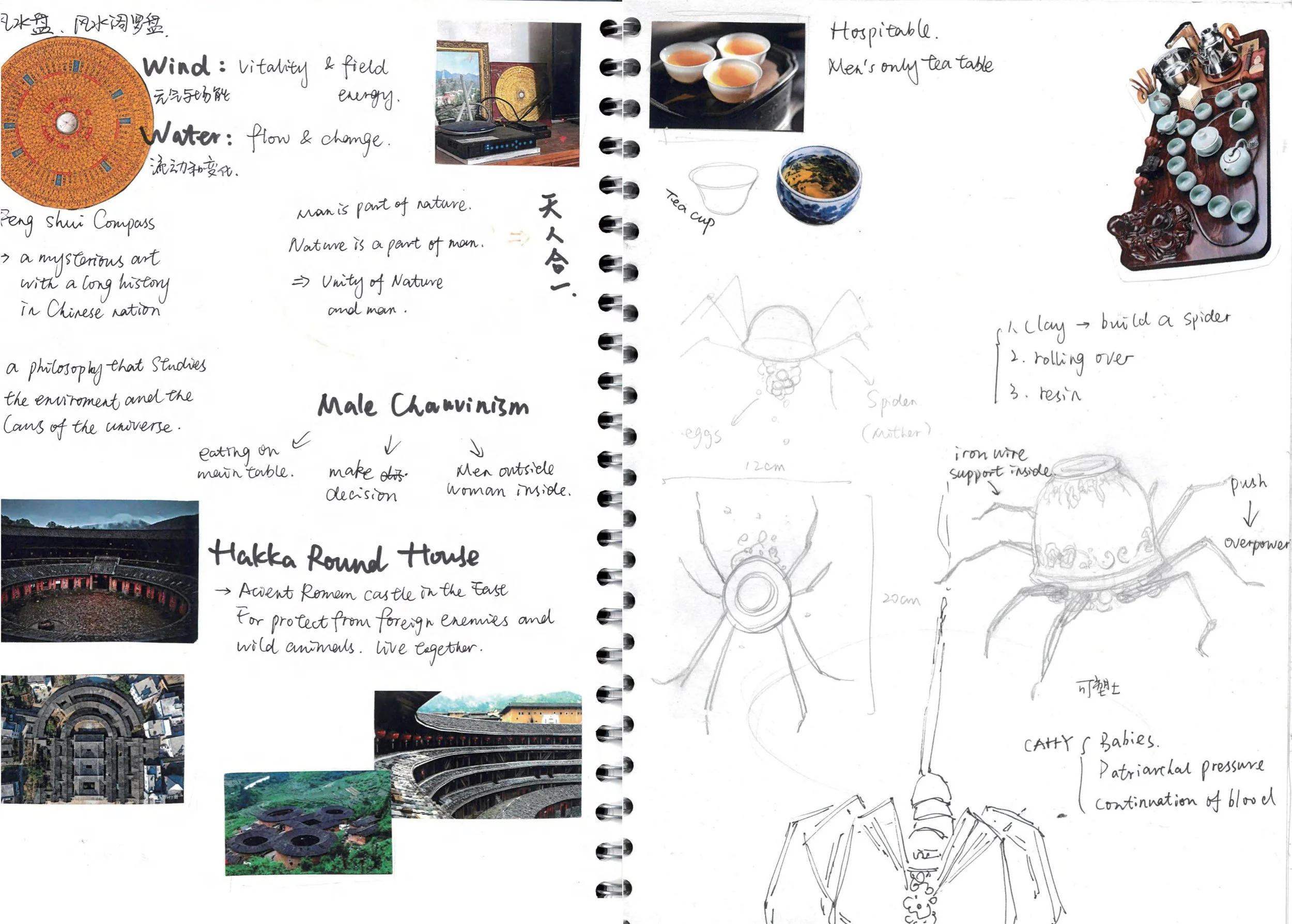
Spider series
2021-2022
Hakka
•
Women
•
Blood Line
•
Faith
•
Hakka • Women • Blood Line • Faith •
The spider figure, the teacup, and the red candle in the work are in a sort of 3D collage, showing the responsibility of women in a particular social context and what is expected of them. The image of a spider holding an egg and weaving a web is deeply felt, and its industriousness as well as its dry and thin appearance matches my impression of an older Hakka woman; the four tea cups on the spider's back represent Machismo, as tea culture is particularly prevalent in the Hakka region and is a reflection of the Hakka people's warmth in dealing with others. In my memory, while the men gathered at the tea table to talk about important matters, the women were usually in the house doing household chores, and the phenomenon of women not being allowed to eat at the proper table still exists in some areas of backward perception; then the red candles stacked high on the tea cups were an indispensable prop in the rituals, representing the expectation of future generations and the transmission of the family lineage.
Responsibility
43 × 60cm, Plastic resin, wool, teacups, candle, 2021




Best Wishes, 65 × 210cm, Plastic resin, wool, metal, foam, gold, 2022
As I researched and interviewed more people, I learned more about the story, which is reflected in the work 'Best Wishes': the spider with the gold jewelry has a gourd-shaped body with a hidden pregnant woman above it, and a row of black eggs below it. In China, when a man prepares a bride price for a marriage, the woman prepares a dowry, and the bride price includes some gold jewelry, the usual 'three gold': a gold ring, a gold bracelet, and a gold necklace, which are symbols of a good marriage and reflect some extent the importance that the man's family attaches to the woman. The apron was given to the bride in the hope that she would bear a group of children (in Chinese, 'apron' is pronounced the same as 'group'). But as society developed and the rural economy improved, this custom gradually disappeared, and the desire for offspring is still included in other gifts and wedding props, as well as in the urging of the elders. In addition, aprons have different meanings in other regions. For example, in Henan province, an apron means the bride is expected to handle household chores well.










